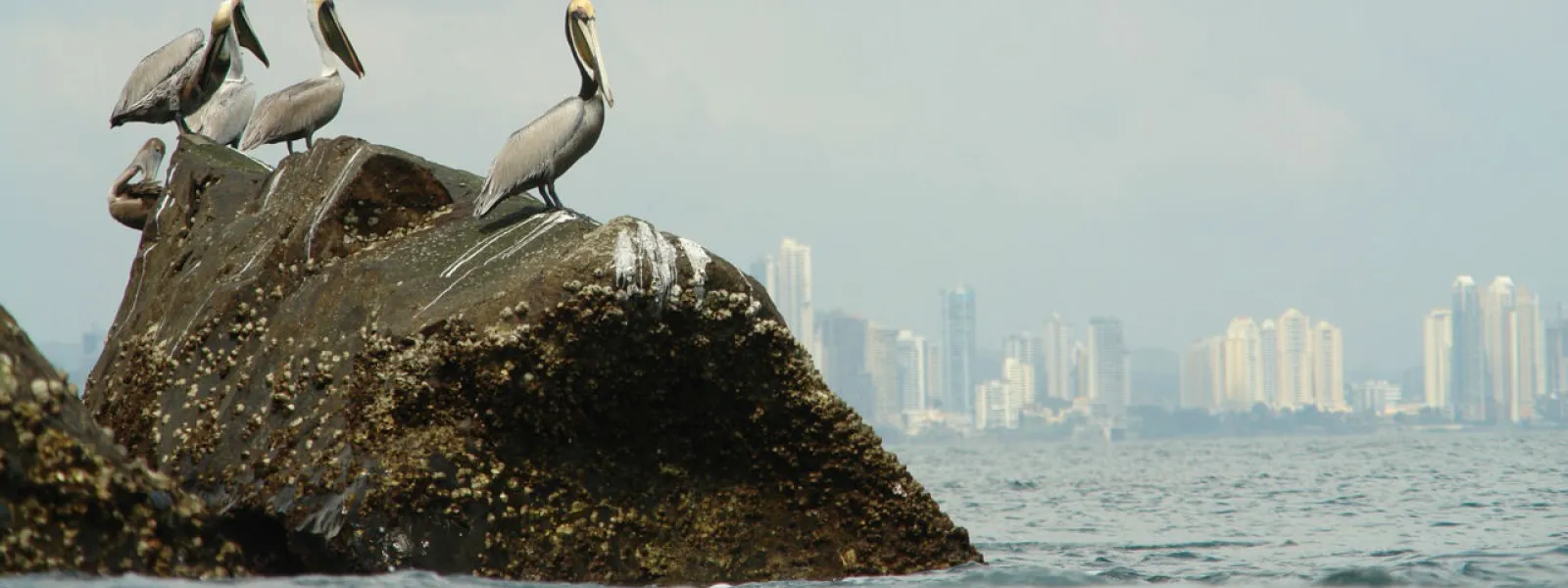
New law protects Panama Bay Wetland Wildlife Refuge
On the occasion of World Wetlands Day, the President of Panama will approve a national law that bestows protected-area status on Panama Bay Wetland Wildlife Refuge. CIAM and AIDA applaud the decision to strengthen protection of an ecosystem key to biodiversity, freshwater supplies, and the fight against climate change.
Panama City, Panama. In an official ceremony on World Wetlands Day, President Juan Carlos Varela will approve a law that bestows protected-area status on Panama Bay Wetland Wildlife Refuge, which was initially established by Administrative Resolution. The government is strengthening legal protection of an ecosystem key to fresh water supplies, reproduction of species of high commercial and nutritional value, biodiversity conservation, and climate change mitigation.
"We welcome a law that demonstrates the importance that this place has on the environment and surrounding populations. It is everyone’s responsibility to protect the 85,652 hectares of coastal marine wetlands in Panama Bay," said Brooke Alfaro, President of the Board of the Environmental Advocacy Center (CIAM).
The Bay is one of the world’s most important nesting and resting sites for migratory birds and a home to endangered species. Mangroves help to fight climate change by capturing carbon from the atmosphere, and mitigate its effects by serving as a buffer against coastal storms and hurricanes. In 2003, it was declared a site of international importance under the Ramsar Convention, an international treaty for the conservation of wetlands.
"We congratulate the Panamanian government because this law is a breakthrough for wetland protection and for fulfillment of the country’s international obligations. It serves as an example for other countries in the region. The law emphasizes the concepts of rational use, ecosystem approach, and ecological character contained in the Ramsar Convention," said Haydée Rodríguez, attorney for the Interamerican Association for Environmental Defense (AIDA).
During the law’s approval process, CIAM’s legal and scientific team, supported by AIDA, helped strengthen the bill to ensure that it guarantees sound management of wetland resources. Both organizations will assist and support the Government of Panama in implementing the law. "We must establish an appropriate management plan to ensure the protection of the wetland for present and future generations," added Rodríguez.
"Thanks to the support of citizens, civil society, the Supreme Court, deputies and government, the law ensures protection of the Panama Bay Wetland," Alfaro said.
In recent years, the site has been affected by the expansion of real estate projects, with consequent channeling of rivers, drainage, and filling of natural areas. Under the new law, activities that threaten the ecological integrity of the refuge and of its boundaries are prohibited. Only another law may permit them.
